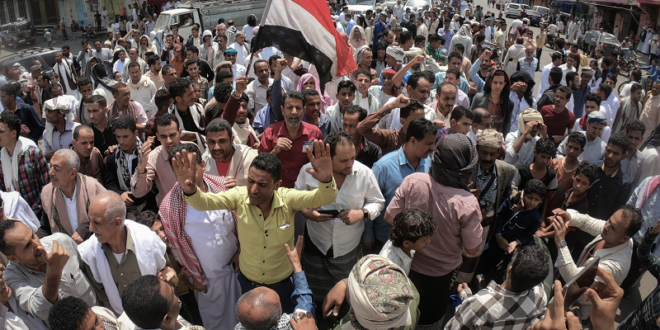Both sides have up held parts of the bargain but the reprieve in violence is fragile. Washington cannot ignore its own role moving forward.
Yemen’s two month ceasefire is set to expire today. Will the warring parties agree to extend it?
It looks like it.*According to Al Jazeera on Thursday morning the United Nations announced that parties have agreed to a two-month extension. According to an Associated Press report late Wednesday, the signs were cautiously optimistic, with the United Nations saying it had received “preliminary, positive indications” from the parties about extending the cessation of hostilities.
Ultimately, whether the Houthis and forces commanded by the newly appointed Presidential Leadership Council return to the negotiating table for the longterm, or the battlefield, depends on decisions made both inside and outside Yemen.
A crucial actor is Saudi Arabia. The Saudis have upheld one tenet of the truce by not bombing Yemen since the ceasefire went into effect on April 2. They have partially implemented other key aspects: they reportedly allowed 12 ships to unload fuel at Hodeidah port: the truce stipulated 18 fuel ships. They have also allowed three flights from Sanaa International Airport to Jordan, with the first flight to Egypt scheduled for June 1: the truce specified two commercial flights a week to Amman and Cairo.
The Houthis have likewise partly upheld the truce by not launching drones or missiles across the border at Saudi Arabia. However reports from the strategic city of Marib indicate Houthi efforts to consolidate their position there.
One outstanding issue remains the besieged city of Taiz: the Houthis control the surrounding area and maintain strict limits on access, while the city remains under the control of forces aligned with Yemen’s government, including the Islamist Islah party. The truce stated that the UN Special Envoy for Yemen, Hans Grundberg, would “invite the parties to a meeting to agree on opening roads in Taiz and other governorates.” Representatives of the Presidential Leadership Council and the Houthis met in Amman Jordan with Grundberg on May 25 to discuss opening key roads, and an agreement was reportedly nearing finalization.
Despite the nominal progress towards the conditions stated in the ceasefire agreement, both sides have accused the other of violating the truce. Observers fear that these accusations may be used to justify resuming hostilities. The anti-Houthi coalition, newly consolidated and strengthened under the Presidential Leadership Council and backed by Riyadh, Abu Dhabi, and Washington, may feel the tide has shifted in their favor and decide that a return to fighting is preferable to beginning negotiations now, while the Houthis maintain control or threaten many contested areas.
Up until today, things were definitely in flux. On Monday, U.S. Ambassador to the UN Linda Greenfield told reporters that the truce talks may be in “trouble,” as she and Secretary of State Antony Blinken continued to push for an extension beyond today. She did not elaborate.
But the United States remains a key player whose actions influence those of the Saudis. If Crown Prince Mohammed bin Salman believes the U.S. will continue to provide the support necessary for his air force to return to its standard daily bombings, he is likely to encourage his Yemeni proxies to return to fighting.
However, if bin Salman fears that the U.S. may rescind support, he is more likely to push the Presidential Leadership Council to negotiate, in order to avoid the humiliation of a crippled air force.
The seven-year war in Yemen has resulted in the deaths of an estimated 377,000 people and a country that is overwhelmed by famine, poverty and malnourishment, much of which can be blamed on the Saudi-led blockade and ongoing violence. The charity Oxfam and a number of aid groups called this week for the ceasefire to hold in order to stanch the bloodshed and humanitarian crisis.
“The opportunity must be seized to extend the truce and push for a lasting peace if we are to avert the risk of millions of Yemenis being forced into acute hunger,” urged Ferran Puig, head of Oxfam in Yemen.
Yesterday’s introduction of a war powers resolution in Congress to end U.S. involvement in the Yemen war may be shifting the calculus just in time to push Riyadh and its Yemeni partners in the direction of ending the conflict rather than perpetuating it. But that will require the Houthis to agree to negotiations as well.
 Eurasia Press & News
Eurasia Press & News




